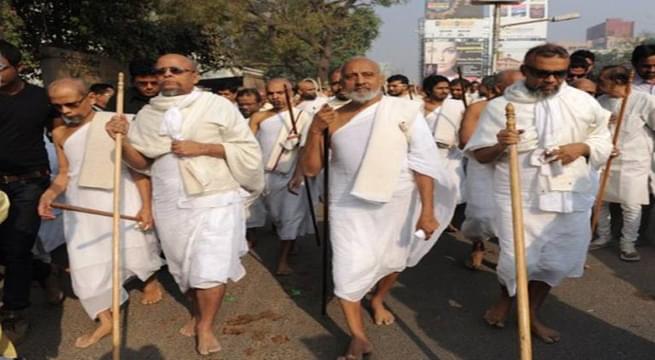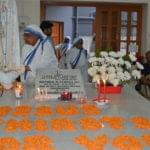Hot Topic
Fast Unto Death Religious Ritual for Salvation is Legally Banned

Jaipur, August 10: Fast Unto Death Religious Ritual for Salvation is Legally Banned In a notable judgment Rajasthan High Court banned Santhara, a traditional Jain community practice of starving oneself to death to attain salvation. The court made this a punishable offence under Indian penal code sections 306 (abetment of suicide) and 309 (attempted suicide), punishable by up to 10 years and one year in jail, respectively. Jain religious outfits have declared to approach Supreme Court against the judgment.
Hearing the PIL petition of human rights activist Nikhil Soni, the High court passed this order. The court also heard out some Jain organizations that were opposed to the ban.
Jain organizations raised the question of minority rights and declared they would appeal the verdict. The verdict said, “The respondents failed to establish that Santhara is an essential religious practice without which the following of Jain religion is not permissible.” But a former judge of the high court from the community, Justice Panachand Jain, insisted that ´Santhara´ had nothing in common with abetment of suicide or forced Sati.
“People give up food of their own accord, for days on end, to attain spiritual salvation,” Justice Jain said. He added “there are instances of people who have taken up Santhara reversing it when they realized they could not take it anymore to attain salvation. This petition violates Article 25, 26(b) and 29(1) of the Constitution that protect the religious and cultural rights of the minorities.”
Santhara is a ritual amongst the staunch Jains here people give up eating completely to die and achieve salvation. Human rights activists attribute it to suicide, euthanasia and even Sati. Family members have been accused of abetment of suicide where people try to get rid of the elderly and unwanted in the family.
“It is unconstitutional as Article 21 of our Constitution guarantees the right to life but not of death,” said activist Soni after the judgment.
Two instances of Santhara in Jaipur had stirred the national debate in late 2006. Bimla Devi Bhansali, 60 years old after being diagnosed with terminal cancer fasted to death. Soni elaborated about the event that Bimla Devi in her final hours had requested for food and water but her frail voice got drowned by the Bhajans sung around her.
Later he moved the petition after another ninety three year old woman, Keila Devi Hirawat, resorted to Santhara the same year. Critics of the religious practice question if it was humane to let people wither away without food, water or medical help.
According to the Jain text Ratnakarandsravakacare, Santhara is permitted to the old, those afflicted with an incurable disease and those faced with a drought or grave physical danger.
It is said to be the ultimate route to moksha – freedom from the cycle of life and death. Most of those who sit on Santhara draw crowds seeking a Darshan and blessings and are honored with huge funeral processions.
Jain community attained the minority status last year in January, 2014 after the cabinet cleared a bill and declared them religious minority population in India


